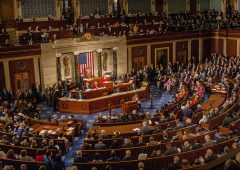Dubai Tightens Crypto Marketing Rules to Enhance Investor Protection
27.09.2024 12:00 1 min. read Alexander Zdravkov
Dubai's Virtual Asset Regulatory Authority (VARA) is set to enforce tougher guidelines for companies promoting cryptocurrency investments within the region.
In a recent announcement, VARA stated that marketing materials must include a clear disclaimer warning that digital assets can lose value and are highly volatile.
Matthew White, VARA’s CEO, emphasized that providing clear guidance helps virtual asset service providers (VASPs) operate responsibly, enhancing market trust and transparency. Additionally, firms offering incentives related to digital assets must first secure compliance confirmation from VARA to ensure these promotions do not mislead potential investors about associated risks.
This regulatory update follows a new collaboration between VARA and the UAE’s Securities and Commodities Authority (SCA), allowing VARA-licensed providers to extend their services across the entire UAE. This initiative aims to create a cohesive regulatory framework that fosters a secure virtual asset ecosystem.
Moreover, a recent study placed the UAE third in a global crypto adoption index, highlighting the country’s favorable tax environment and strong support for innovation in the digital asset sector. The research indicates that a significant portion of the UAE population owns cryptocurrency, reflecting a vibrant startup culture and government backing for crypto initiatives.
-
1
U.S. State of Connecticut Blocks Crypto from Public Sector Operations
12.06.2025 16:00 1 min. read -
2
Federal Reserve Clears Path for Banks to Enter Crypto Market
24.06.2025 8:00 2 min. read -
3
Vietnam Charts a Clear Course for Digital Assets With New 2026 Law
16.06.2025 18:00 1 min. read -
4
GENIUS Act Clears Senate, Setting Stage for First U.S. Crypto Law
18.06.2025 12:00 1 min. read -
5
Coinbase and Set Gemini to Expand in EU Under MiCA Rules
17.06.2025 13:00 2 min. read
Kazakhstan to Establish State Crypto-Reserve Under Central Bank Oversight
Kazakhstan is taking a major step toward integrating digital assets into its national financial strategy, with plans to establish a state-managed crypto-reserve.
Europe’s Largest Euro-Denominated Spot Crypto Exchange Secures License Under MiCA
Bitvavo, Europe’s largest euro-denominated spot crypto exchange, has officially received a MiCA license from the Dutch Authority for the Financial Markets (AFM), allowing the firm to operate across all 27 European Union member states.
U.S. Crypto Investors Hit by IRS Letter Surge as Tax Crackdown Looms
In just two months, crypto tax platform CoinLedger observed a staggering 700% surge in the number of U.S. users receiving IRS warning letters, signaling a sharp escalation in federal tax enforcement targeting digital asset holders.
Ripple Drops Cross-Appeal, Moves to End SEC Case “Once and for All”
Ripple CEO Brad Garlinghouse announced Friday that the company is officially dropping its cross-appeal in its long-running legal battle with the U.S. Securities and Exchange Commission (SEC), signaling a final move toward ending the years-long case.
-
1
U.S. State of Connecticut Blocks Crypto from Public Sector Operations
12.06.2025 16:00 1 min. read -
2
Federal Reserve Clears Path for Banks to Enter Crypto Market
24.06.2025 8:00 2 min. read -
3
Vietnam Charts a Clear Course for Digital Assets With New 2026 Law
16.06.2025 18:00 1 min. read -
4
GENIUS Act Clears Senate, Setting Stage for First U.S. Crypto Law
18.06.2025 12:00 1 min. read -
5
Coinbase and Set Gemini to Expand in EU Under MiCA Rules
17.06.2025 13:00 2 min. read


